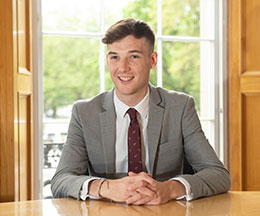Murray Beith Murray LLP is a leading Scottish private client law firm.
For 175 years we have specialised in meeting the legal, financial and administrative needs of individuals and families, family trusts, charities and private companies.
Murray Beith Murray LLP is a leading Scottish private client law firm.
For 175 years we have specialised in meeting the legal, financial and administrative needs of individuals and families, family trusts, charities and private companies.

When dealing with estate planning, the focus tends to be on Inheritance Tax (IHT) mitigation and savings. However, for those with assets acquired over the course of their life, there is also a need to consider the impact Capital Gains Tax (CGT) has on an estate.
Capital Gains Tax is the tax you pay on the gain you make when you sell an asset. As with all taxes, some allowances apply, as well as allowable deductions or additions.
The gain is calculated by deducting the purchase price of the asset from the sale price of the asset. If the asset is a property asset, you can also include any costs incurred to improve the capital value of the property – but not the cost of running repairs and maintenance. After you arrive at that figure, you then deduct the GCT Annual Exempt Amount (AEA).
Since 2020/21, the annual exemption had been fixed at £12,300, however significant changes to the level of exemption have taken place from 6 April 2023 onwards. The exemption has been reduced to £6,000 for the current tax year, and will reduce further to £3,000 from 6 April 2024.
A small quirk, that is specific to the taxation of estates, is that the annual exemption can only be utilised for a limited time. The exemption is only applicable during the tax year in which the individual died, and the two tax years following. If the administration period stretches beyond that point, the annual exemption is lost and any gains are taxable without the deduction of annual exemption.
In the case of an estate, CGT is chargeable at 20% on the total taxable gain, with the exception of residential property, which is taxable at 28%.
Executors should also be aware that the requirement to complete a 60-day CGT return on the disposal of UK residential property extends to estates, therefore, any disposal of this type may require additional reporting.
When an estate becomes liable for CGT, depends on whether there has been a disposal prior to the death of the deceased which has not been settled. If there is, the executor needs to carry out the calculations and agree the tax due with HMRC. This then needs to be paid from the estate as it is, effectively, a debt of the estate.
During the executry administration, if property or assets are sold which attract CGT the estate becomes liable for payment of the tax. However, if an asset is passed to legatees in terms of a Will, there is no CGT liability. The value of the asset is assessed at the date of death and this is the figure which is assessed in any future disposal of the value the legatee acquired the asset for. Also, the date of acquisition by the legatee will be deemed to be the date of death.
Should the legatee subsequently dispose of the asset, the normal rules relating to CGT will apply.
In order to calculate whether CGT is payable by the estate, any assets owned by the deceased are valued at the date of death and they are deemed to have been transferred to the executor for that value as at the date of death. This value is considered the cost or acquisition value.
The gain is calculated in the same way as we have described above but instead of the purchase price, we should substitute the value at date of death.
As you will appreciate, all tax affairs can be complex and complicated, and for that reason, it is important to take professional advice from a specialist who deals with estates and associated tax matters.
Finally, if the individual is not resident in the UK, generally, there will be no charge to CGT on disposal. It is, however, important to check with your professional adviser to ensure this continues to be the case.
We have specialist solicitors who look after the affairs of executors and beneficiaries and are able to advise of options faced by both when dealing with all of the tax issues that arise when dealing with an estate. Murray Beith Murray Tax Manager, David Windram, is an expert in tax compliance and tax planning issues for individuals, trusts, executries and partnerships.
If you would like to discuss the exposure of the estate to CGT or other taxes, please contact us, please get in touch with Murray Beith Murray today using the Enquiry Form or call us now on 0131 225 1200.
At Murray Beith Murray, we are more than just tax practitioners - we are trusted advisors. We are dedicated to helping you preserve your wealth with our bespoke tax service, tailored to your particular needs. Our highly personal service reflects our culture, which is centred on integrity, trust and expertise, and the guidance we provide has been designed to be an investment, not an expense.
